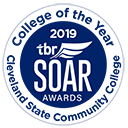Median wages
No Data Available
Study human society and social behavior by examining the groups and social institutions that people form, as well as various social, religious, political, and business organizations. May study the behavior and interaction of groups, trace their origin and growth, and analyze the influence of group activities on individual members.
- Analyze and interpret data to increase the understanding of human social behavior.

- Collect data about the attitudes, values, and behaviors of people in groups, using observation, interviews, and review of documents.

- Prepare publications and reports containing research findings.

- Plan and conduct research to develop and test theories about societal issues such as crime, group relations, poverty, and aging.

- Teach sociology.

- Develop, implement, and evaluate methods of data collection, such as questionnaires or interviews.

- Present research findings at professional meetings.

- Develop approaches to the solution of groups' problems, based on research findings in sociology and related disciplines.

- Direct work of statistical clerks, statisticians, and others who compile and evaluate research data.

- Observe group interactions and role affiliations to collect data, identify problems, evaluate progress, and determine the need for additional change.

- Consult with and advise individuals such as administrators, social workers, and legislators regarding social issues and policies, as well as the implications of research findings.

- Develop problem intervention procedures, using techniques such as interviews, consultations, role playing, and participant observation of group interactions.

- Collaborate with research workers in other disciplines.
- Analytical or scientific software — ATLAS.ti; SAS
 ; SPSS
; SPSS  ; VERBI MAXQDA
; VERBI MAXQDA
- Data base user interface and query software — Data entry software
 ; Microsoft Access
; Microsoft Access  ; QSR International NVivo; Qualtrics Research Suite
; QSR International NVivo; Qualtrics Research Suite
- Desktop publishing software — Microsoft Publisher


- Document management software — Adobe Systems Adobe Acrobat


- Electronic mail software — Email software

- Graphics or photo imaging software — Adobe Systems Adobe Photoshop
 ; Microsoft Visio
; Microsoft Visio 

- Information retrieval or search software — Online reference databases

- Internet browser software — Web browser software

- Map creation software — ESRI ArcGIS software


- Object or component oriented development software — R


- Object oriented data base management software — Database management system DBMS

- Office suite software — Microsoft Office

- Presentation software — Microsoft PowerPoint


- Project management software — Microsoft Project


- Spreadsheet software — Microsoft Excel


- Web page creation and editing software — Adobe Systems Adobe Dreamweaver
 ; Web editing software
; Web editing software
- Word processing software — Helios TextPad; Microsoft Word

![]() Hot Technology — a technology requirement frequently included in employer job postings.
Hot Technology — a technology requirement frequently included in employer job postings.
- Reading Comprehension — Understanding written sentences and paragraphs in work related documents.

- Active Listening — Giving full attention to what other people are saying, taking time to understand the points being made, asking questions as appropriate, and not interrupting at inappropriate times.

- Social Perceptiveness — Being aware of others' reactions and understanding why they react as they do.

- Writing — Communicating effectively in writing as appropriate for the needs of the audience.

- Active Learning — Understanding the implications of new information for both current and future problem-solving and decision-making.

- Critical Thinking — Using logic and reasoning to identify the strengths and weaknesses of alternative solutions, conclusions or approaches to problems.

- Speaking — Talking to others to convey information effectively.

- Judgment and Decision Making — Considering the relative costs and benefits of potential actions to choose the most appropriate one.

- Learning Strategies — Selecting and using training/instructional methods and procedures appropriate for the situation when learning or teaching new things.

- Complex Problem Solving — Identifying complex problems and reviewing related information to develop and evaluate options and implement solutions.

- Instructing — Teaching others how to do something.

- Monitoring — Monitoring/Assessing performance of yourself, other individuals, or organizations to make improvements or take corrective action.

- Science — Using scientific rules and methods to solve problems.

- Coordination — Adjusting actions in relation to others' actions.

- Persuasion — Persuading others to change their minds or behavior.

- Systems Analysis — Determining how a system should work and how changes in conditions, operations, and the environment will affect outcomes.

- Time Management — Managing one's own time and the time of others.

- Service Orientation — Actively looking for ways to help people.










